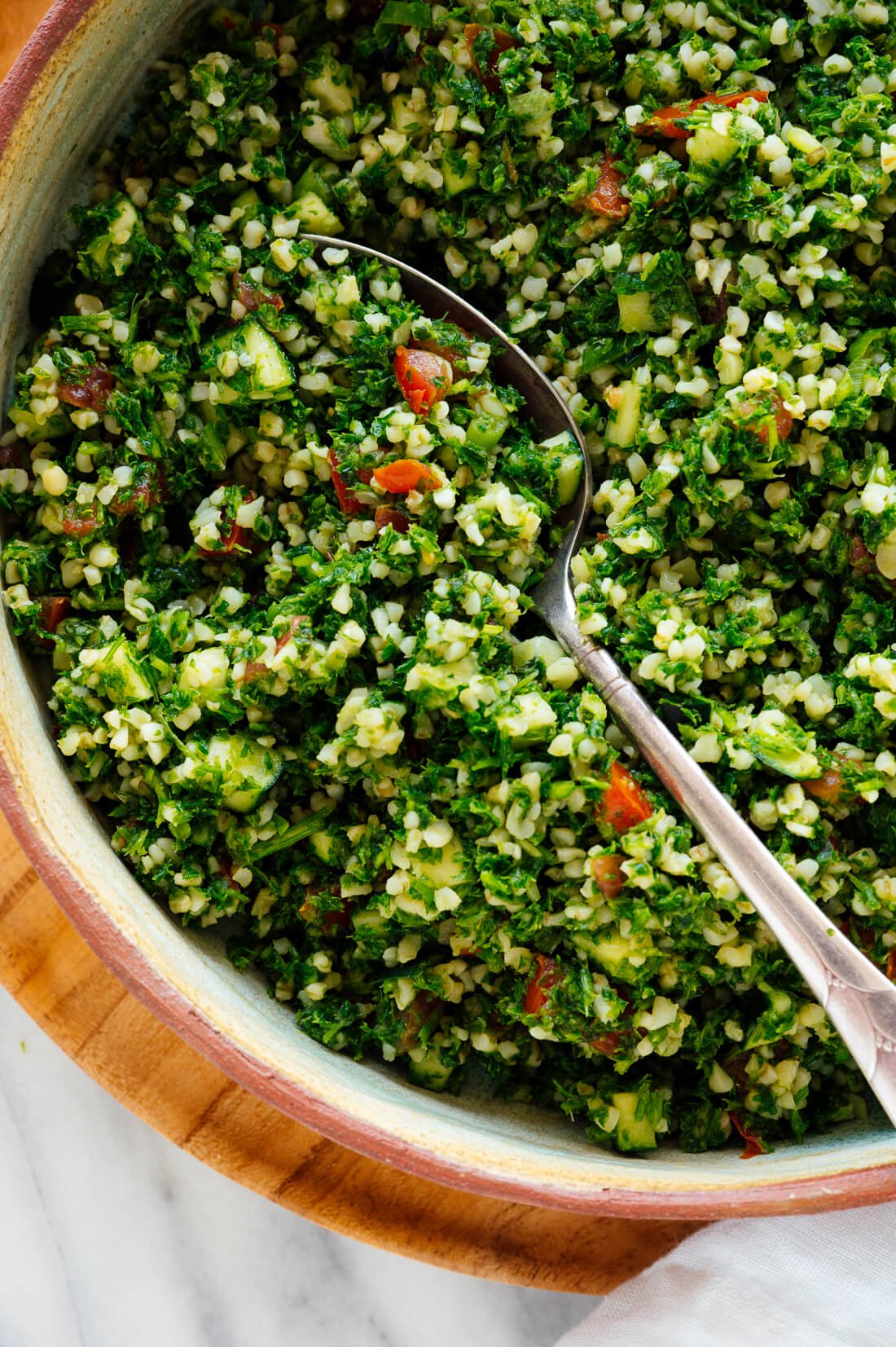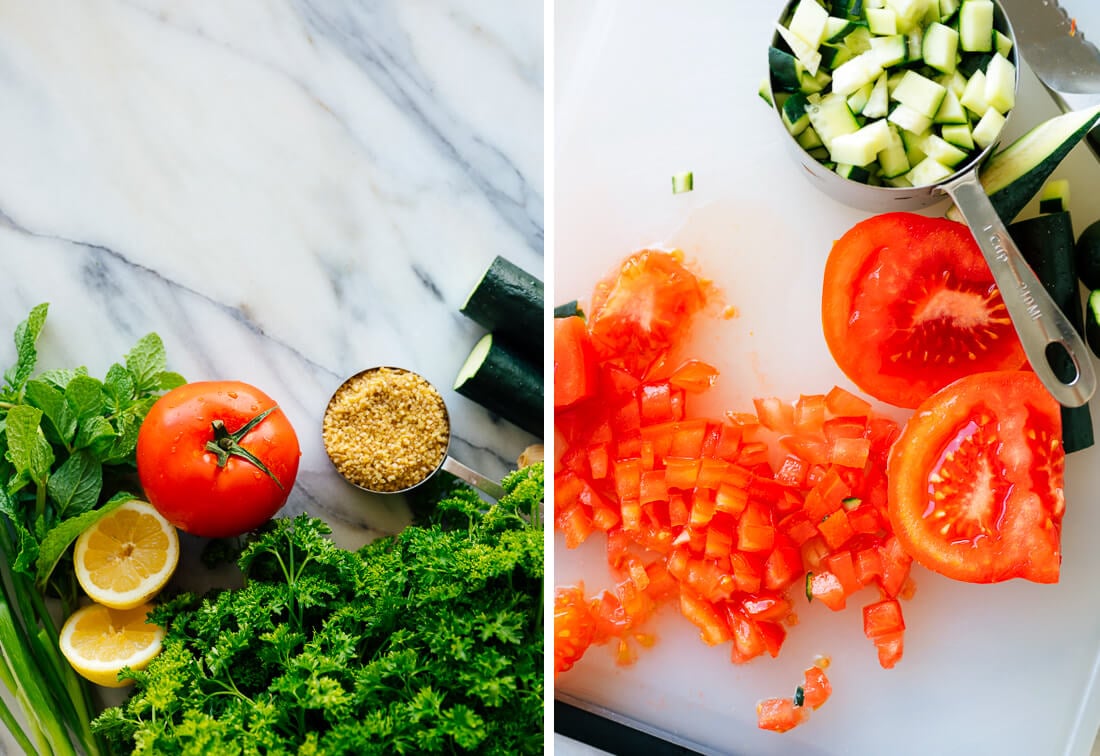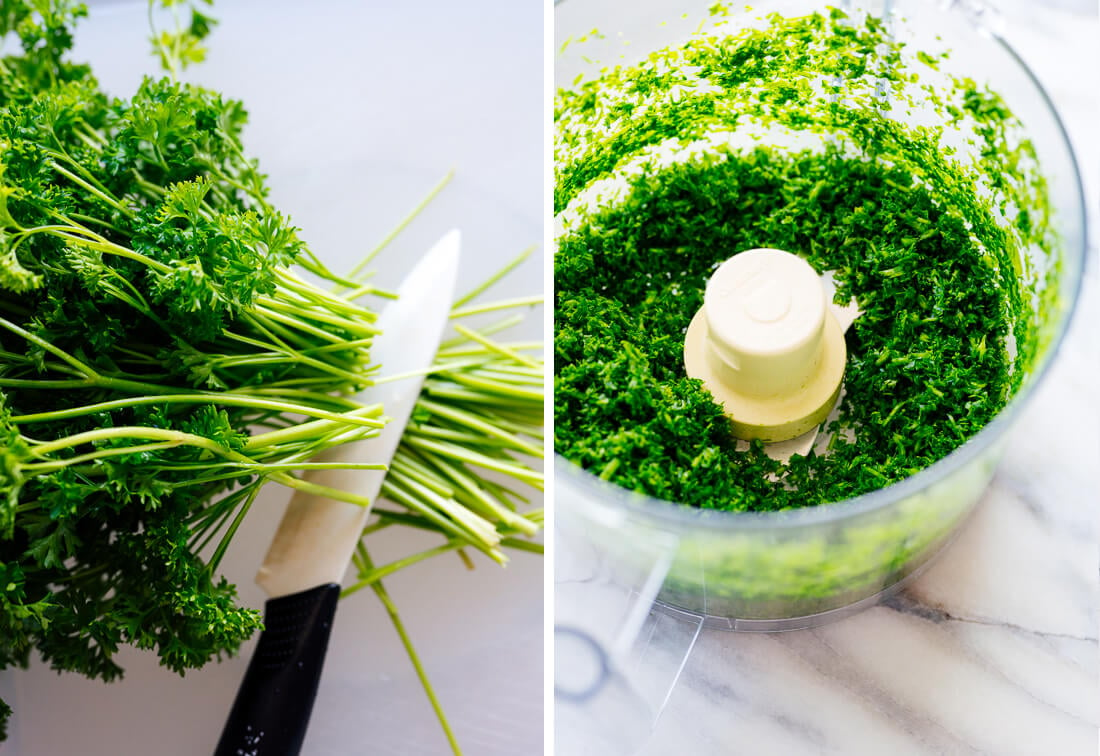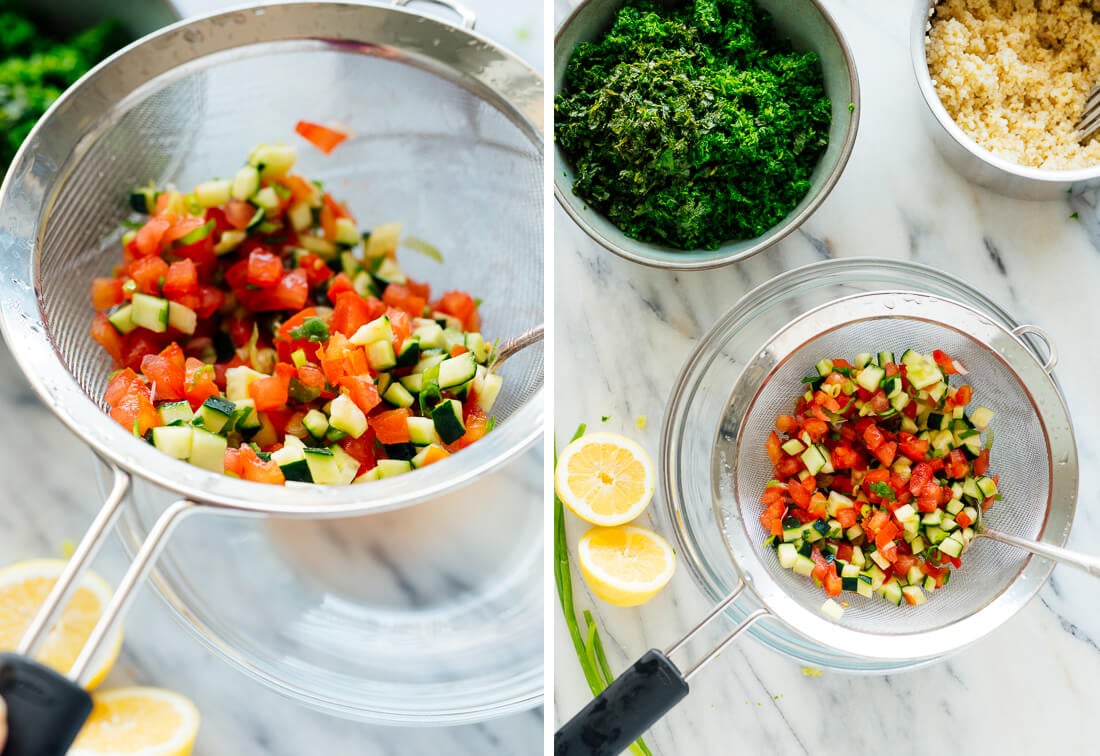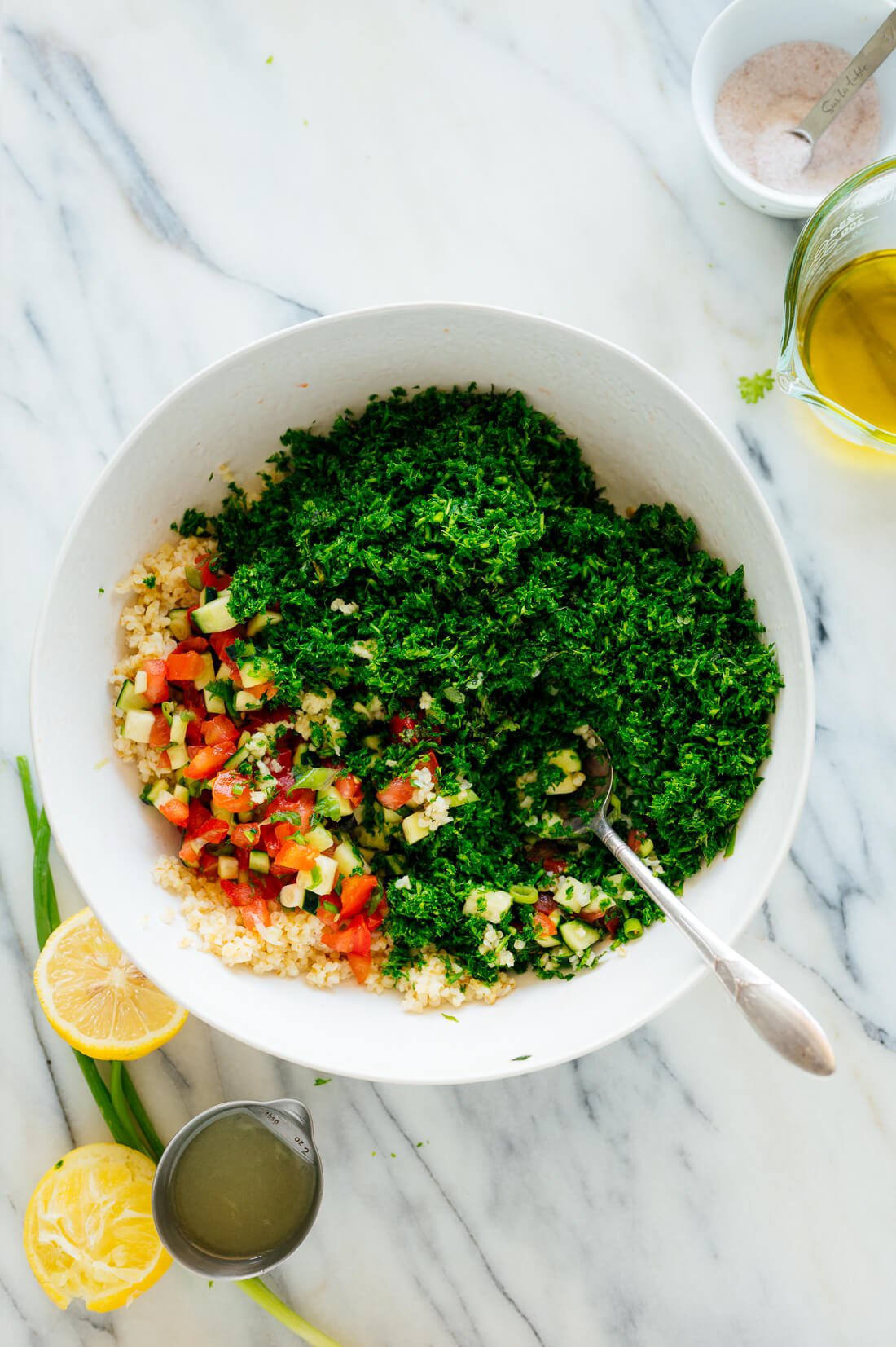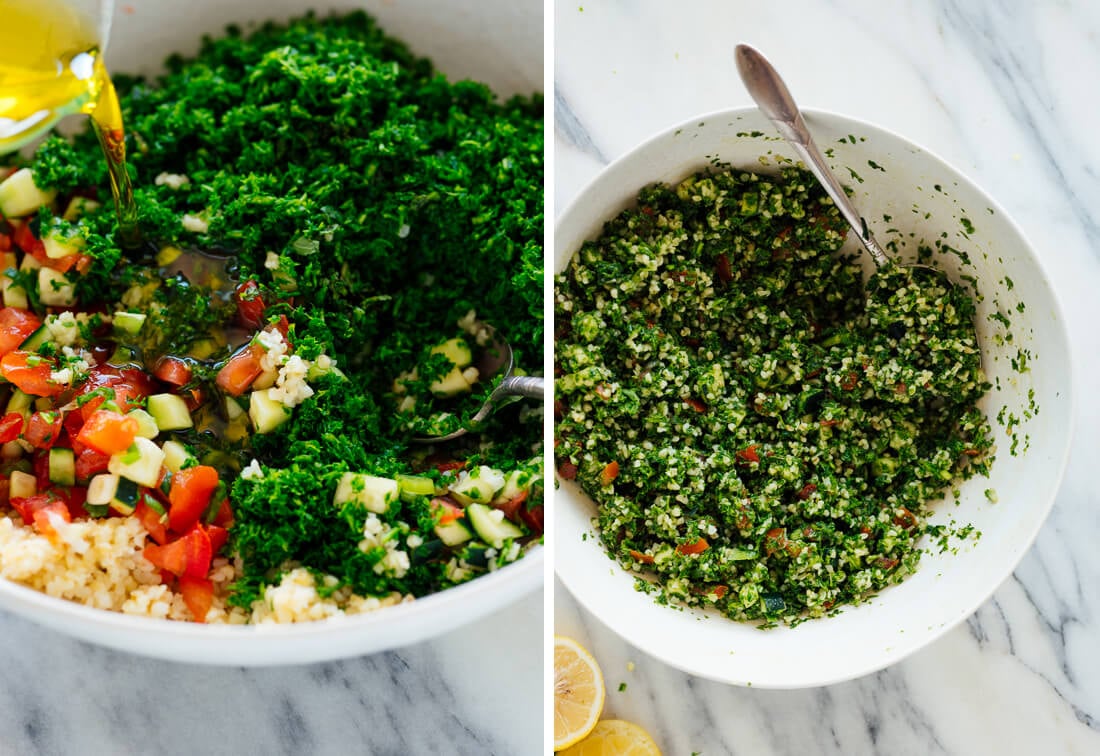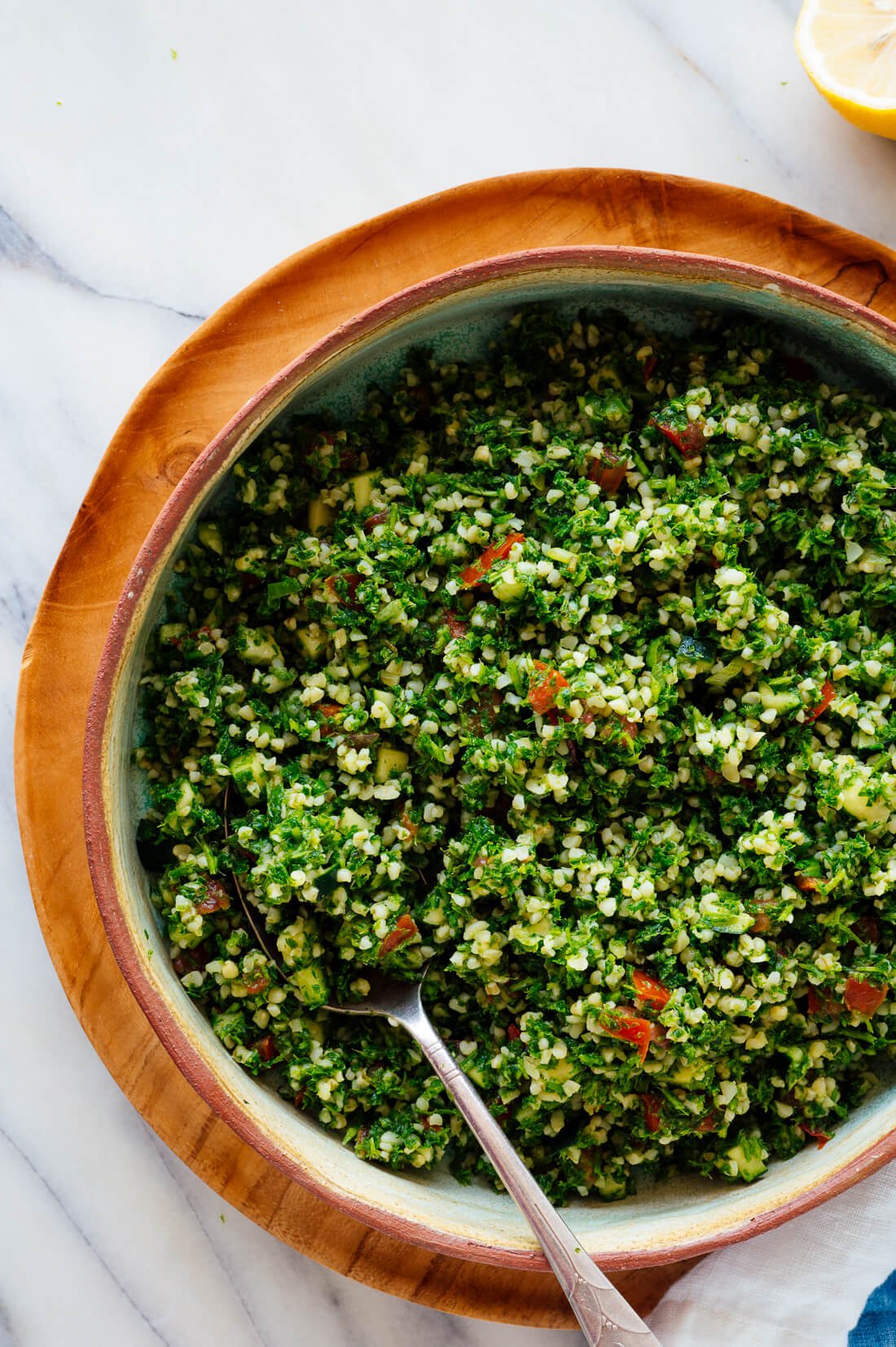Finally! I’ve figured out how to make the best tabbouleh. It’s just as good, if not better than, my favorite local Middle Eastern restaurant’s. If you try it, I think you’ll agree. Tabbouleh (also spelled tabouli) is a super fresh herb and bulgur salad, with parsley being the number one ingredient. It’s dotted with diced cucumber and tomato, and dressed simply with olive oil and lemon juice. It’s refreshing, light and packed with healthy ingredients.
You’ll often find tabbouleh as a side dish on Mediterranean menus. It’s right at home with hummus, baba ganoush, falafel, feta, olives… all of my favorite things. I’ve attempted tabbouleh at home over the years, and I’m so pleased to share what I’ve learned with you today. Ready to make some great tabbouleh?
Tabbouleh Ingredients
Bulgur
Bulgur is parboiled cracked wheat, so it’s a whole grain. Once prepared, it’s tender and fluffy. Bulgur is often confused with couscous, but they’re not the same (couscous is actually tiny pasta). Authentic tabbouleh is made with super fine grain (#1) bulgur and it’s soaked rather than cooked, but I haven’t been able to find it at regular grocery stores. There are several other varieties of bulgurs, and you’ll probably find only one option at the store. So, cook (or soak) it according to the package directions.
Fresh Parsley
Authentic tabbouli uses a ton of parsley. That’s why this salad is so green! I tried both flat-leaf and curly, and for once, curly is the way to go. Even when it’s chopped very small, curly parsley offers some extra volume that makes this tabbouleh so pleasant to eat.
Fresh Mint and Green Onion
Mint is standard and adds even more fresh flavor. That said, it can be expensive if you don’t grow it at home, so you can skip it if you’d rather. Green onion is my mild onion of choice. It’s perfect in tabbouleh.
Cucumber and Tomato
Fresh cucumber and tomato add more texture and color, and build on the refreshing factor. Have I said refreshing enough yet? Lebanese readers have informed me that cucumber is unusual in tabbouleh, which is news to me! You can skip it if you’d like, but it’s quite nice.
Olive Oil, Lemon Juice and Garlic
Tabbouleh is dressed in a simple combination of olive oil and lemon juice. You won’t find garlic in every tabbouleh recipe, but I think that one clove makes this recipe extra delicious.
How to Make the Best Tabbouleh
1) Salt your tomato and cucumber, and drain off the excess juice.
Fortunately, this doesn’t take any extra time. Tomato and cucumber release a lot of moisture when they’re exposed to salt, and will make your tabbouleh way too watery if you do not drain it off. Simply combine the tomato and cucumber in a bowl with some salt (you’ll find these instructions in the recipe below), and set it aside while you chop the parsley. Drain off the excess juice before you stir the salad together. Easy!
2) Use lots of parsley and chop it finely.
This recipe calls for three bunches of parsley, and the easiest way to chop that much parsley is in your food processor. You can do it by hand, but it will take a while. Don’t worry about removing the thin parsley stems—they offer a lot of great flavor.
3) Season sufficiently with lemon juice and salt.
Tabbouleh should be zingy and full of flavor, and you’ll need to use enough lemon and salt to get there.
Watch How to Make Tabbouleh
Tabbouleh Serving Suggestions
Tabbouleh is typically served chilled or at room temperature. It’s a perfect side dish or salad to offer with Mediterranean/Middle Eastern meals. Here are a few suggestions:
Dips and spreads: Creamy Hummus, Baba Ganoush, Tzatziki, Tahini Sauce Crispy Baked Falafel Fattoush Salad with Mint Dressing Mujaddara (Lentils and Rice with Caramelized Onions) Dukkah with bread and olive oil
Please let me know how your tabbouleh turns out in the comments! I hope you love it.
*Tomato note: Use the most ripe and red tomatoes you can find! If you’re making this salad when tomatoes aren’t in season, cherry tomatoes might be your best bet.

